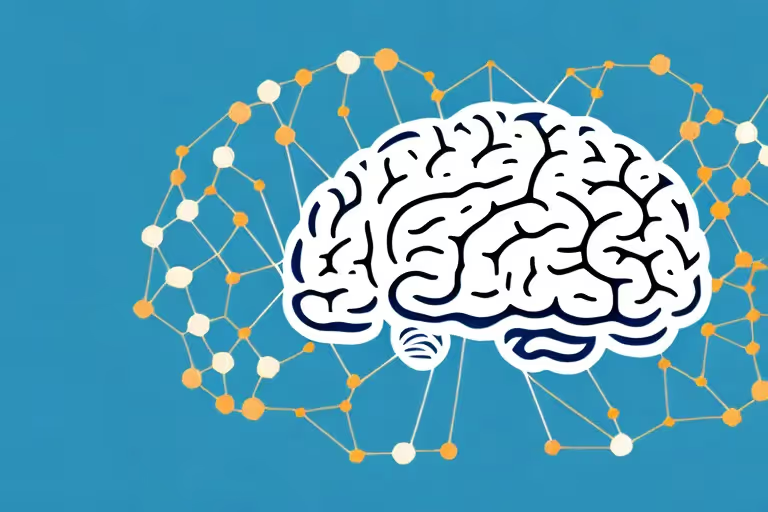In a world that seems to be constantly throwing new challenges at us, it can be difficult to remain calm and centered amidst turmoil. This is where equanimity comes in - the ability to maintain emotional balance in the face of adversity. Let's explore the concept of equanimity and how it can be cultivated in our daily lives.
Understanding Equanimity
Equanimity is a state of emotional stability that allows you to remain calm and grounded, regardless of the situation. This does not mean that you become indifferent to what is happening around you, but rather that you are able to approach it with a sense of clarity and balance.
Defining Equanimity
Equanimity can be defined as a state of evenness and equilibrium in body and mind.
When we practice equanimity, we are able to maintain a sense of balance and calm, even in the midst of challenging experiences. We are able to approach difficult situations with a clear mind, free from the anxiety or fear that can cloud our judgement.
The Importance of Equanimity in Daily Life
The ability to maintain equanimity can have a powerful impact on our daily lives. When we are able to approach difficult situations with a sense of calm and balance, we are better equipped to handle stress, make clear decisions, and connect with others in a meaningful way.
Equanimity can also help us to develop inner strength and resilience, enabling us to bounce back from setbacks and face new challenges with a sense of confidence and purpose.
Equanimity vs. Indifference
It is important to note that equanimity is not the same as indifference. Indifference implies a lack of caring or concern, whereas equanimity involves a deep sense of empathy and compassion, even in the midst of challenging experiences.
Equanimity allows us to remain present in difficult situations, while still maintaining a sense of compassion for ourselves and others.
Equanimity is a quality that can be cultivated through mindfulness practices such as meditation and yoga. By learning to observe our thoughts and emotions without judgement, we can develop a greater sense of self-awareness and emotional regulation.
Equanimity can also be fostered through self-care practices such as getting enough sleep, eating a healthy diet, and engaging in regular exercise. When we take care of our physical and emotional needs, we are better able to approach challenging situations with a sense of calm and balance.
In addition to benefiting our own lives, equanimity can also have a positive impact on those around us. When we approach others with a sense of empathy and understanding, we create a more compassionate and connected world.
Overall, equanimity is a valuable quality that can help us navigate the ups and downs of life with greater ease and grace. By cultivating a sense of balance and calm, we can approach challenges with clarity and compassion, and live more fulfilling and meaningful lives.
The Role of Mindfulness in Cultivating Equanimity
Mindfulness is a powerful tool for cultivating equanimity, as it allows us to stay present in the moment and observe our thoughts and emotions with a sense of detachment. This practice can help us to develop a greater sense of calm and balance, even in the midst of difficult situations.
Mindfulness Techniques for Equanimity
One effective mindfulness technique for cultivating equanimity is to focus on the breath. Simply taking a few moments to breathe deeply and observe the sensations in your body can help you to cultivate a greater sense of calm and balance. As you focus on your breath, notice the rising and falling of your chest and the sensation of the air moving in and out of your nostrils.
You can also practice mindfulness in your everyday activities, by bringing a sense of presence and awareness to your daily routine. Whether you are walking, eating, or washing dishes, try to stay fully present in the moment and observe your thoughts and emotions without judgement. Notice the sights, sounds, and sensations around you, and bring your attention back to the present moment whenever your mind begins to wander.
Another technique for cultivating equanimity is to practice loving-kindness meditation. This involves directing feelings of love and compassion towards yourself and others, even in difficult situations. By cultivating feelings of kindness and compassion, you can develop a greater sense of emotional balance and resilience.
The Connection Between Mindfulness and Emotional Balance
Research has shown that mindfulness can have a powerful impact on emotional balance, by reducing stress and anxiety, improving mood, and increasing resilience. By practicing mindfulness regularly, you can develop a greater sense of emotional awareness and learn to respond to difficult situations with greater clarity and compassion.
One study found that participants who practiced mindfulness meditation for just eight weeks experienced significant reductions in symptoms of anxiety and depression. Another study found that mindfulness-based stress reduction was effective in reducing symptoms of post-traumatic stress disorder (PTSD) in veterans.
Incorporating Mindfulness into Your Routine
There are many ways to incorporate mindfulness into your daily routine, whether through formal meditation practices or simple mindfulness exercises throughout the day. One simple exercise is to take a few deep breaths whenever you feel stressed or overwhelmed. You can also try incorporating mindfulness into your daily activities, such as taking a mindful walk or eating a mindful meal.
If you are new to mindfulness, it can be helpful to start with short, guided meditations. There are many apps and websites that offer free guided meditations, ranging from just a few minutes to an hour or more. Some popular apps include Headspace, Insight Timer, and Calm.
Whether you have five minutes or an hour, making time for mindfulness can help you to cultivate greater equanimity and emotional balance in your daily life. With practice, you can learn to observe your thoughts and emotions with greater clarity and compassion, and develop a greater sense of calm and balance in even the most challenging situations.
Developing Emotional Resilience
Emotional resilience is the ability to bounce back from adversity and maintain a sense of optimism and hope, even in the face of challenges.
Strategies for Building Emotional Resilience
One effective strategy for building emotional resilience is to cultivate a sense of gratitude and appreciation for what you have in your life. This can help to shift your focus away from the challenges and towards the positive aspects of your experience.
Other strategies for building emotional resilience include seeking social support, practicing self-care, and developing a sense of purpose and meaning in your life.
The Benefits of Emotional Resilience in Challenging Times
Developing emotional resilience can help you to navigate even the most challenging experiences with greater ease and confidence. By cultivating a sense of inner strength and optimism, you can approach difficult situations with a sense of determination and purpose.
Ultimately, developing emotional resilience can help you to lead a more fulfilling and meaningful life, even in the face of adversity.
Overcoming Obstacles to Emotional Resilience
It is important to recognize that building emotional resilience is not always easy, and there may be obstacles that stand in your way. However, by staying committed to your goals and practicing self-care and self-compassion, you can overcome these obstacles and continue to grow and learn.
Remember, resilience is not about never experiencing challenges or setbacks, but about learning to navigate them with grace and determination.
Nurturing Compassion and Empathy
Compassion and empathy are essential components of equanimity, as they allow us to connect with others on a deeper level and approach difficult experiences with a sense of care and concern.
The Connection Between Equanimity and Compassion
Equanimity and compassion are deeply interconnected, as they both involve a sense of empathy and understanding for others, even in difficult circumstances.
By cultivating equanimity, you are better equipped to approach challenging situations with a sense of clarity and compassion, allowing you to connect with others in a meaningful way.
Cultivating Empathy for Yourself and Others
Cultivating empathy involves learning to connect with others on a deeper level, and to see things from their perspective.
One effective way to cultivate empathy is to practice active listening, by fully focusing on what the other person is saying and trying to understand their perspective without judgement.
Compassionate Communication in Difficult Situations
Communicating with compassion involves learning to approach difficult conversations with a sense of care and concern for the other person's well-being.
By approaching challenging situations with a sense of equanimity and compassion, you can foster deeper connections and build greater resilience in your relationships.
Conclusion
Cultivating equanimity in challenging times involves learning to approach difficult situations with a sense of clarity, balance, and compassion.
Through the practice of mindfulness, emotional resilience, and connecting with others from a place of empathy and compassion, we can develop the inner strength and confidence to navigate even the most challenging experiences with grace and determination.
Remember, equanimity is not about avoiding challenges or difficulties, but about learning to approach them with a sense of calm and balance, allowing you to lead a more fulfilling and meaningful life.



.webp)






.avif)

%20(1).avif)


.avif)
.avif)
.webp)


.avif)


















































































































.avif)

















.svg)









